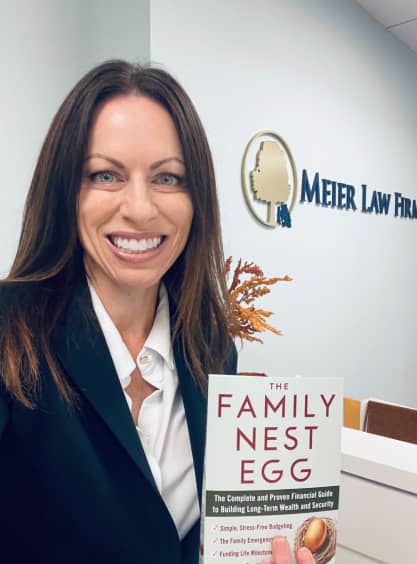The Importance of Emergency Planning for Parents of Young Children

Do you know what would happen to your kids if you didn’t make it home from work one evening? Does your child’s school know who to contact if you don’t show up to pick them up? Does that person know what to do after retrieving your child from the school? These are scary questions, but nothing could be scarier than not having a plan in place when an emergency arises. Most parents (even those who are attorneys) don’t give enough thought to what should happen during the initial emergency period after something has happened to them. They tend to focus only on long-term planning in the event of their death. Just as estate planning is an important part of taking care of your family, a short-term emergency planning for parents is a must.
Although we can’t predict the timing of an emergency or even if it will happen at all, we should always put plans in place for the worst-case scenario. If parents of minor children are missing, incapacitated, or killed, Child Protective Services (CPS) will be notified. Child Protective Services is a state agency that oversees the welfare of children. It usually becomes involved when young children are left behind after parents have passed away, are deemed missing, or are seriously injured. They have a duty to respond after becoming notified of such a situation.
Child Protective Services aims to place children in safe situations, ideally in the care of their family members. However, CPS will not automatically leave your child with your babysitter or even your family member if you are missing or have died. This means that your children could temporarily be placed in foster care—in the care of strangers—at the moment they need love and security the most.
Temporary foster care can happen during the gap between the time of your incapacity or death and the time a judge appoints a guardian. This may be a permanent guardian who was pre-determined by you, a court-appointed permanent guardian, or a temporary guardian.
Could your children be placed in temporary foster care before being placed with permanent guardians? Yes! Can you keep this from happening? Yes, you can.
You can prevent this by ensuring your estate plan addresses not just what should happen in the long-term for your kids but also what should happen in the short term. A short-term emergency plan should include temporary care for your children, medical directives, and an alert system.
Temporary Care for Your Children, Emergency Planning For Parents
Emergency planning for parents needs to include legal documentation that authorizes people you trust to temporarily care for your children during an emergency, so they will not have to be placed in temporary foster care. Temporary guardians (also known as standby guardians) can be caretakers, friends, family members, or other adults you trust who you know would provide your children love and comfort during a crisis. We usually recommend that parents name at least four or five temporary guardians in case one or more are unavailable to help. Temporary guardians should live within twenty minutes to quickly get to the children during an emergency.
Many estate planning attorneys do not suggest standby or temporary guardians to their clients. This could be because they typically work with older clients with adult children. At The Meier Law Firm, we work with families of all ages. We always recommend naming temporary guardians in an estate plan for parents of young children.
Children’s Medical Directives
An emergency plan should also include medical directives for your children so the people you want can make medical decisions for them if you cannot. Having medical directives in writing also ensures that your wishes for their treatment and care can be honored.
Don’t leave it to strangers to make major medical decisions concerning your children. Make sure you complete medical directives for each of them.
Alert System
Completing legal forms that authorize others to temporarily care for your kids and make their medical decisions during an emergency is not enough. There needs to be an alert system in place so these decision-makers can be brought in immediately. At our firm, we notify temporary guardians in advance that they have been chosen for this role and explain to them what they need to do in the event of an emergency. We provide them instructions and documentation they may need to present to CPS or the court to prove that they have the legal authority to keep the kids in their care.
We provide family emergency cards for parents to keep in their wallets and cars, so the police and medical caretakers would be made aware if they were in an accident. We even have instructions for caretakers and babysitters, so they know who to call if the parents fail to return.
When you begin estate planning, work with an attorney who understands the importance of having an emergency plan. Our compassionate estate planning attorney will prepare an emergency plan that gives you peace of mind while addressing the short- and long-term needs of your little ones.